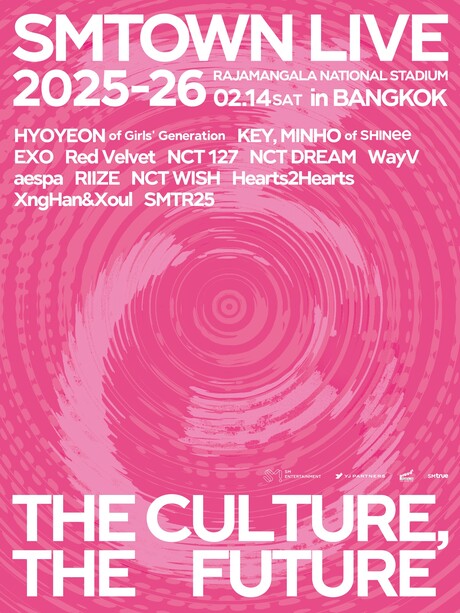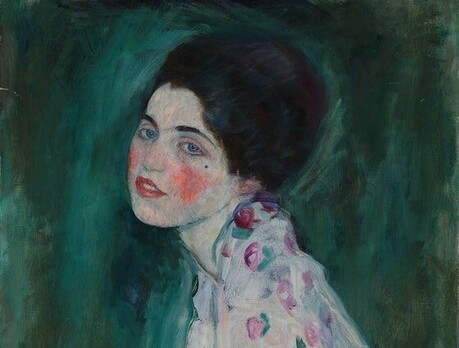Seoul transforms into a cultural playground during the Chuseok holiday period, offering residents and visitors a wealth of activities and performances to enjoy at a leisurely pace. With the traditional mass exodus from the capital, the city becomes less crowded, making it an ideal time to explore its numerous cultural offerings.
From October 3-9, visitors can explore Seoul's royal palaces, Jongmyo Shrine, and royal tombs completely free of charge with no reservations required. The palaces and Jongmyo Shrine will remain open through October 12, though the royal tombs will be closed on October 10. This special access provides an excellent opportunity for both locals and tourists to discover Korea's rich royal heritage without the usual crowds and costs.
The 2025 Fall K-Royal Culture Festival, jointly hosted by the Korea Heritage Service and the Korea Heritage Agency, will take place from October 8-12 at Seoul's four major palaces and Jongmyo Shrine. The festival offers a unique blend of traditional culture, performances, and hands-on experiences designed for people of all ages. Special programs this year include a Hanbok Royal Banquet at Gyeongbokgung, where visitors dressed in traditional hanbok can enjoy live demonstrations of Korean sewing, embroidery, and gold-leaf techniques. A new Hanbok Storytelling program will be introduced by designated intangible cultural heritage holders, providing deep insights into the craftsmanship behind traditional Korean clothing.
At Changgyeonggung, seniors can participate in Donggwol Jangwonseo, a traditional horticultural program, while children can enjoy hands-on activities at Junmyeongdang Children's School in Deoksugung. At Jongmyo Shrine, the Jongmyo Architecture Expedition invites young people to explore the shrine's unique architectural features. Other highlights include the Palace Concert at Jongmyo Shrine, which blends ritual music with the beauty of the historic site, and the Moonlight Lotus Show at Changgyeonggung, featuring a nighttime media art display. Foreign visitors can access special programs through Creatrip, with more information and reservations available on Ticketlink and Creatrip websites.
The National Museum of Modern and Contemporary Art, Korea (MMCA) will keep all four of its venues open throughout the holiday period from October 3-9, covering National Foundation Day, the Chuseok holiday, and Hangeul Day. The museum is running a social media event for visitors who verify their visit during these days by posting photos on Instagram with the hashtag "2025추석맞이국현미방문" (2025 Chuseok Visit to MMCA). Participants can win prizes including Bluetooth earphones and coffee vouchers. Key exhibitions currently on display include Korea Artist Prize 2025 and Kim Tschang-Yeul at MMCA Seoul, A Commemorative Exhibition for the 80th Anniversary of Liberation: Landscapes of Homeland and Longing at MMCA Deoksugung, Highlights of MMCA Global Art Collection at MMCA Gwacheon, and The Bunker: A Passage to Light at MMCA Cheongju.
The National Museum of Korea will host the 2025 The Art Spot Series at its Open Plaza from October 5-9, though the museum will be closed on October 6, which is Chuseok Day. This annual joint program with the Korea Traditional Performing Arts Foundation allows people to experience traditional performances under the theme "Encounter Between Tangible and Intangible Heritage." Seouichul Band will kick off the series on October 5 with "Chuseok Good Luck Gut," a reinterpreted performance of Korea's traditional shamanic ritual that covers diverse regional variations. The program continues with pungmul (traditional folk music and dance) and talchum (Korean mask dance drama) performed by The Gwangdae traditional performing arts troupe.
A contemporary reinterpretation of Korea's traditional percussion music, samulnori, is scheduled for October 7. October 8 features panjul, Korea's iconic tightrope walking that was inscribed on the UNESCO Intangible Cultural Heritage of Humanity list in 2011, along with a performance by the National Gugak Orchestra. The series concludes on October 9 with Yangju Byeolsandae Nori, Korea's traditional mask drama that has been inscribed as both a UNESCO Intangible Cultural Heritage and a National Intangible Cultural Heritage of Korea. This satirical mask dance drama, handed down for more than 300 years in Yangju, humorously depicts class conflicts, critiques of the elite, and the realities of everyday life. All performances are free of charge, open to the public, and require no reservations.
The National Folk Museum of Korea celebrates Chuseok as a time when families gather to share stories and participate in moon-watching and ganggangsullae, a traditional Korean circle dance. The museum will present various traditional performances and programs in collaboration with the Korea Craft & Design Foundation. Festivities begin October 5 with a vibrant parade of Pyeongtaek Nongak, featuring folk music, dance, and rituals from the Pyeongtaek region in Gyeonggi Province. During the ganggangsullae performance, visitors will be invited to join the dance spontaneously. The Korea Ssireum Association will host a Chuseok Ssireum Contest and hands-on ssireum class on October 5 and 7 for those wanting to experience Korean folk wrestling.
Additional craft classes offered on October 5 and 7 include making mother-of-pearl moon key rings, minhwa-inspired hand mirrors, and tiger origami. As a pre-event for Hanbok Culture Week, the museum will host "Chuseok Hanbok Experience: Dressing in Traditional Elegance" on October 4 and 5, reviving the tradition of wearing new hanbok called chuseokbim to celebrate Chuseok. The museum will be closed on October 6, Chuseok Day.
The Seoul Foundation for Arts and Culture will transform the city's plazas and waterways into an open-air stage during the Seoul Street Arts Festival 2025 from October 6-8. Running daily from 10 a.m. to 10 p.m., the festival will fill Cheonggyecheon and Seoul Plaza with dance, circus, music, and experimental performances from Korea and abroad, presenting more than 30 works designed to reimagine everyday urban spaces as artistic playgrounds. At the heart of this year's program is "The Resonance of Seoul and Harmony," a large-scale production from choreographer Lee Luda's Black Toe, staged at Seoul Plaza Stage on October 7 and 8. This performance blends traditional Korean forms such as pansori (musical storytelling) and samulnori (percussion music) with taekwondo, contemporary dance, and media art in an attempt to bridge tradition and modernity.
Ten homegrown productions, chosen under the theme of "Seoulness," will bring everything from acrobatics to comic theater to street corners across downtown. Among the highlights is "City of Fallen Stars" by CodeSassy, a nighttime aerial spectacle using massive mobile sculptures that will transform Seoul's skyline into a circus arena. International programming features France's renowned troupe Transe Express, which will parade its towering marionettes from Cheonggye Plaza to Seoul Plaza, turning central boulevards into a roving opera stage.
Traditional Korean music performances continue at both Namsan and Donhwamun theaters throughout the holiday week. The World Pansori Association will host the third World Pansori Festival on October 8 and 9 at the Namsan Traditional Theater. This year's centerpiece is the premiere of "The Tale of the Acrobat Swallow," inspired by the swallow-and-gourd motif from the classic pansori Heungbo-ga. The piece expands its narrative with characters drawn from other folktales, including Sim Cheong and Chun-hyang, following a limping swallow and a magical gourd on their journey back to Joseon through a blend of song, theater, and music that reimagines the traditional form.
The festival also highlights new voices, including Korean and foreign participants who completed the 2025 Ojakgyo Project's pansori classes, who will perform excerpts from Chunhyang-ga and Sugung-ga. Festivities conclude October 9 with "Let's Ganggangsullae Go! Go! Go!," a special full-moon performance reviving the traditional circle dance where audiences are invited to join hands with singers for a finale that transforms the stage into a global harvest celebration. Meanwhile, Donhwamun Traditional Theater will host free afternoon concerts on October 8 and 9 at 3 p.m. and 5 p.m., featuring singer-songwriter 3San and the crossover ensemble Simfull, which blends vocals with haegeum (a traditional string instrument), percussion, and keyboards, with no reservations required.






























